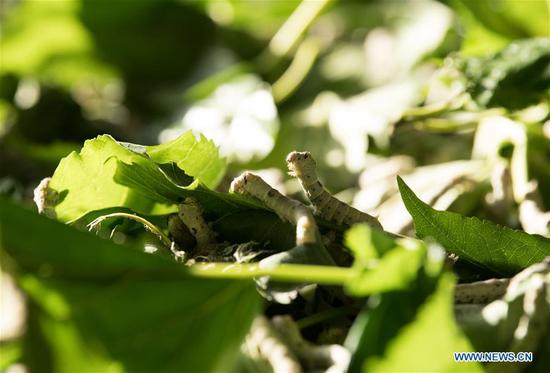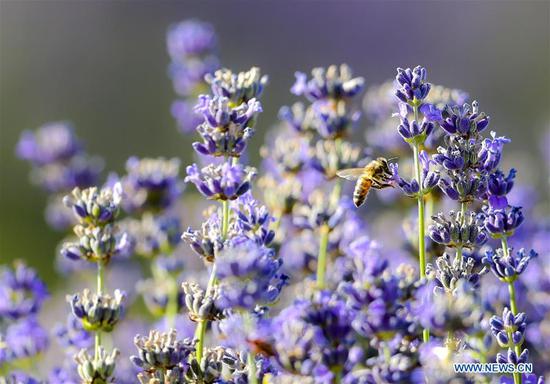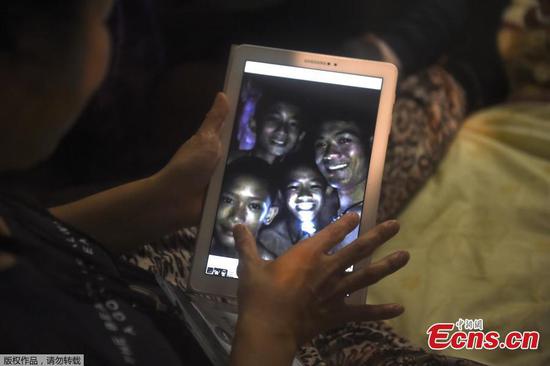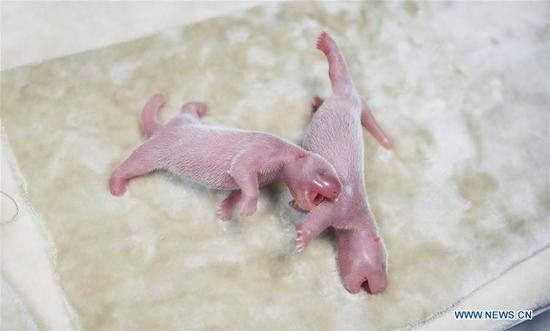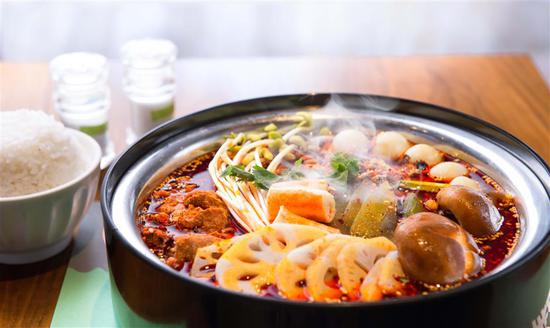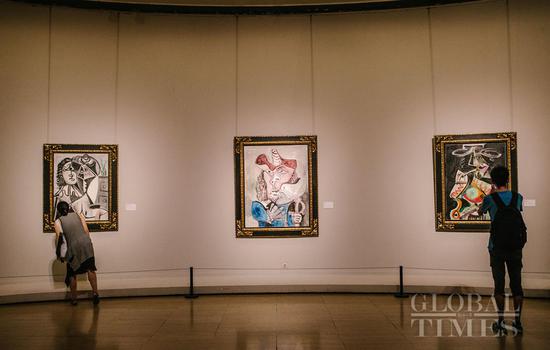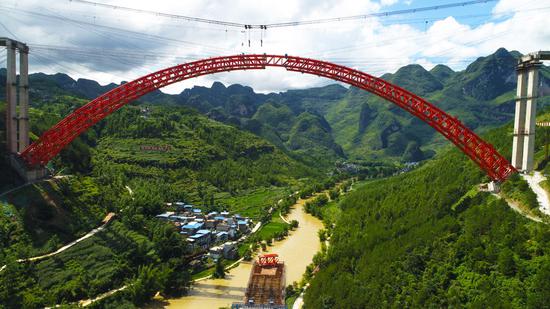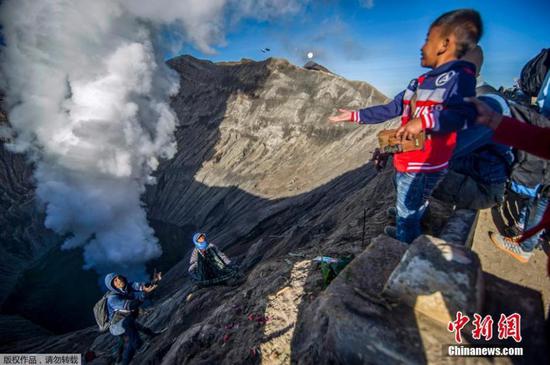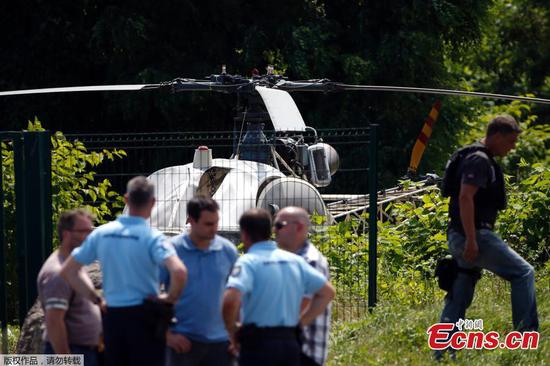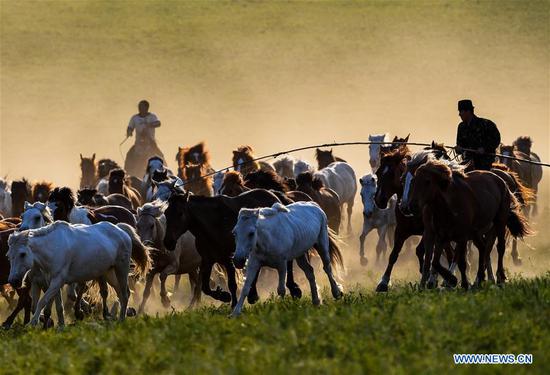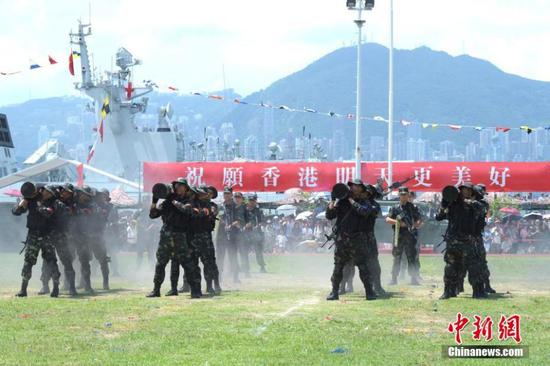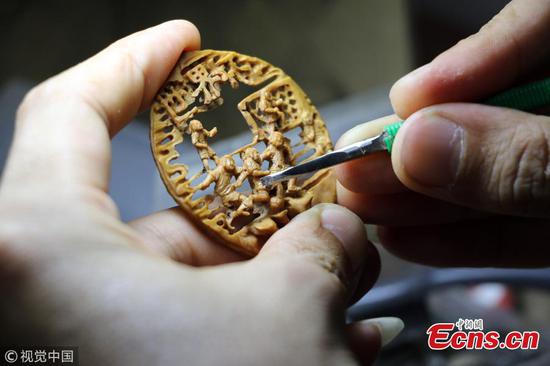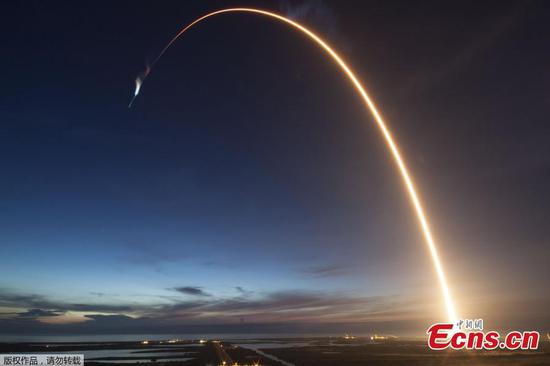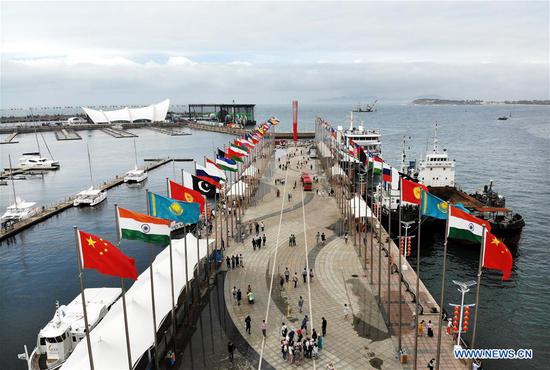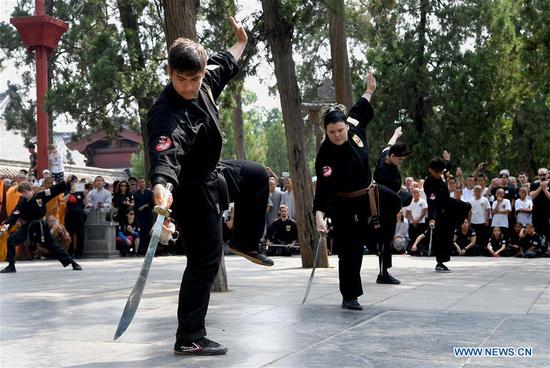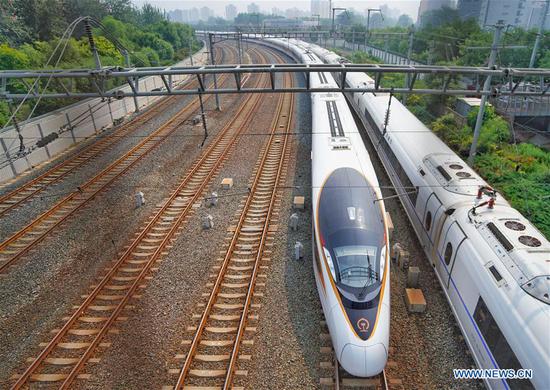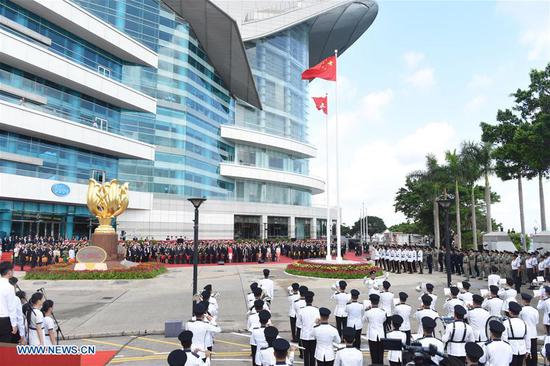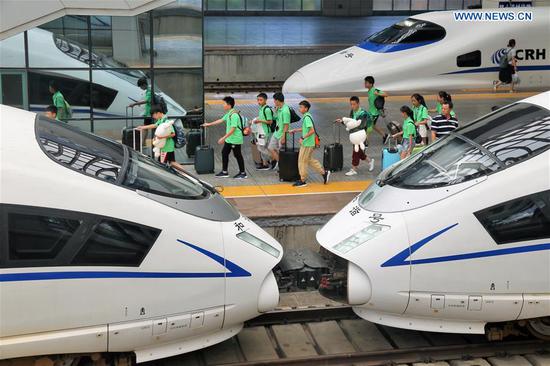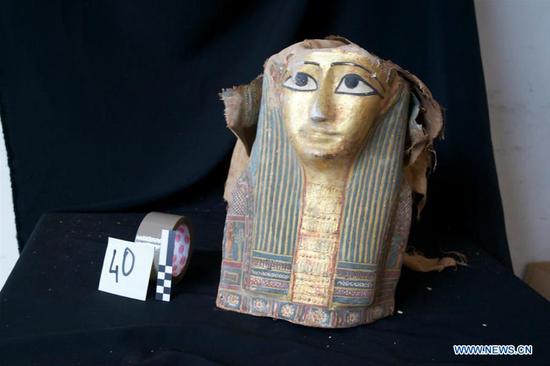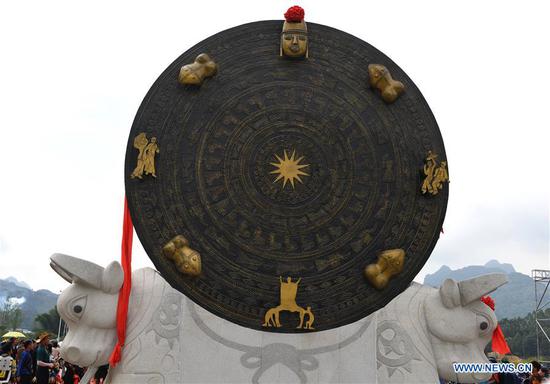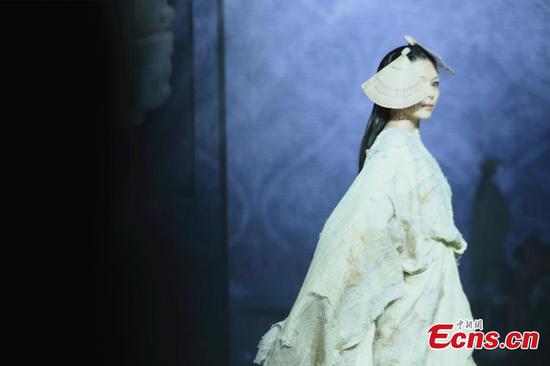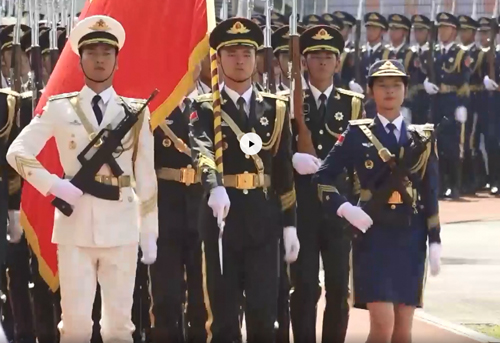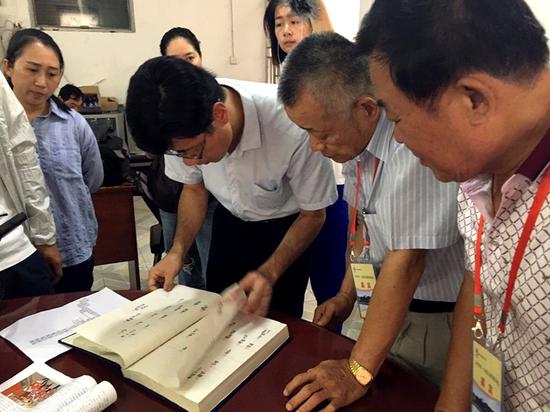
Huang Ching-hsiung (second from right) examines genealogical records related to his family in Pujin. (Photo for China Daily)
"My plan was to visit Pujin in the mainland and compare the list on the tablet with the genealogy of the Huang family in the village. If they matched, it would mean I had found my mainland roots and relatives," he said.
He began preparing for his adventure by printing out an online map and carefully marking the village, a nearby airport and a hotel - a plan of action that alarmed his family.
"My father was very serious. He planned how to get to the village and where to stay. We knew no one there, so the family tried to dissuade him from making the journey at his advanced age," said Huang Hui-chun, his daughter.
Undeterred her father continued to conduct research online. One day, while reading a news story about the historical ties between the two Pujins, he was intrigued by an appeal and a phone number: "If you want to discover your roots in (mainland) Pujin, please contact Huang Chi-tsung."
The pioneer
More than 20 years ago, Huang Chi-tsung was as anxious as Huang Ching-hsiung to unearth his roots in Pujin. He was the first Huang from Taiwan to visit the mainland village in many years, and his journey was arduous.
"I was curious about the word 'Pujin', which I had seen on tombstones since I was a child. At college, I spent a lot of time in the library reading about Quanzhou. Also, family stories made me yearn for the mainland," he said.
In 1990, he traveled to Quanzhou alone and rented a car and driver.
"At the time, the roads in the mainland were terrible, and I didn't have a map or any information about the village. I went to several villages, asking'Is this Pujin? Do you know a village where the Huang family lives?'" he recalled.
"Eventually, after searching from sunrise to sunset, some seniors pointed me to a place at the end of a muddy lane. It was hard to drive along the lane, but I was very excited when I saw some houses with the name 'Huang' carved on them. After talking with some villagers, I confirmed it was the place my ancestors came from."
Since then, the 59-year-old has organized several trips for family members from Taiwan.
"Over the years, I have seen great changes in the mainland. When I first visited Pujin, the farmers were busy preparing to start their own clothing factories, and now it's a very wealthy village," he said, adding that he has business connections with several companies in the mainland.
"It's wonderful to see more people on Taiwan are taking their children back, and the Huangs in the mainland have also visited us on Taiwan in recent years," he said,
"We are getting old, but exchanges between the two sides must continue. We cannot forget our roots."
Homecoming
When the Huangs from Taiwan arrived at Pujin on the morning of June 9, they were greeted with banners, balloons and firecrackers.
Huang Ching-hsiung immediately recognized a striking similarly in speech patterns. "The moment I heard the Pujin villagers speak, I recognized the accent - it was the same one my father and grandfather had, even though they grew up in Lugang," he said, noting that Lugang residents have the strongest accent on Taiwan.
By checking records in the village he discovered that the six characters on his ancestral tablet matched the local family's genealogy almost exactly, with the exception of one small difference in the sequence.
"It could be the result of missing or damaged parts of the genealogical record. So I do not know exactly which Huang sub-branch my family belongs to, or who our closest relatives are," he said.
However, one villager told Huang Ching-hsiung that his features were familiar, which added to his conviction that his roots lie in Pujin.
"A man named Huang Shubiao, who is two years younger than me, told me that his great-grandfather ran the Jinyuan store in the mainland during its heyday," he said.
"The story of Jinyuan has also been passed down in his family. He told me that my great-grandfather was very successful and he once returned to his home village to plant a garden and build a study hall. They are still there. Now I have a close relative in the mainland, and I will bring my family next time I visit."
He and Huang Shubiao prayed together in the ancestral temple, where the family maxims - including thrift, loyalty and honesty - are written on the walls and their history is carved into the pillars and plaques.
His daughter, Huang Huichun, who accompanied him on the visit, said, "It was an amazing journey. Now I understand my father's heart and his tears of joy."









